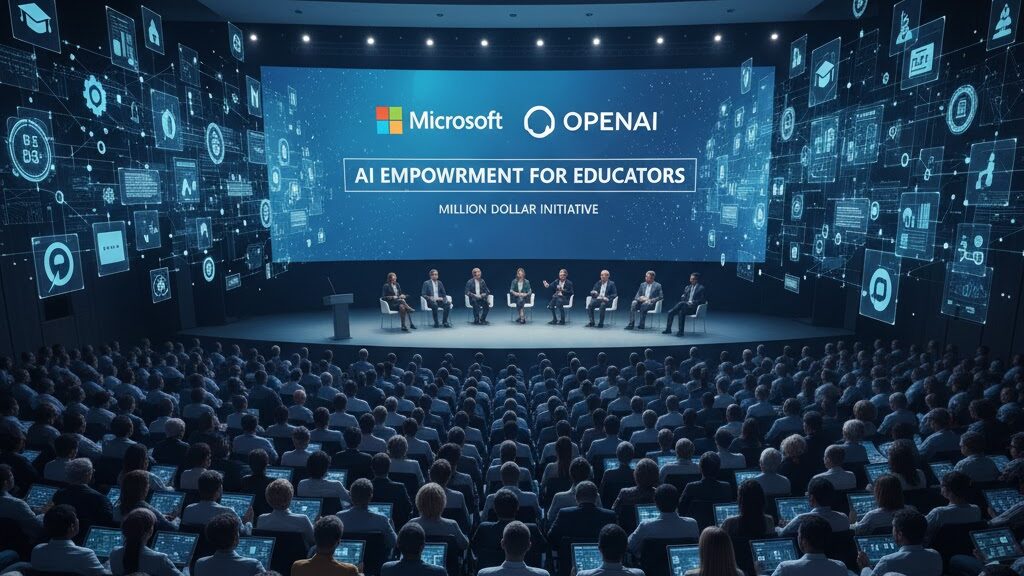
Source
Associated Press
Summary
Microsoft, OpenAI, and Anthropic are investing millions to fund large-scale AI training for U.S. teachers through partnerships with the American Federation of Teachers (AFT) and the National Education Association (NEA). The initiative aims to equip educators with practical AI skills and ethical awareness to integrate technology effectively into classrooms. Microsoft has pledged $12.5 million over five years, while OpenAI is contributing $10 million in funding and technical support. The AFT will build an AI training hub in New York City and plans to train 400,000 teachers within five years. While the partnerships promise to expand AI literacy rapidly, experts and union leaders caution that schools must retain control over programme design and ensure training aligns with educational—not corporate—priorities.
Key Points
- Microsoft, OpenAI, and Anthropic are funding nationwide AI training for teachers.
- The AFT will launch an AI training hub in New York City with plans for additional centres.
- The initiative seeks to train 400,000 teachers over five years.
- The NEA is developing AI “microcredential” courses for its 3 million members.
- Unions insist that educators, not tech companies, will design and lead the programmes.
- Experts warn against corporate influence and stress maintaining educational integrity.
Keywords
URL
Summary generated by ChatGPT 5


